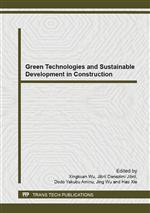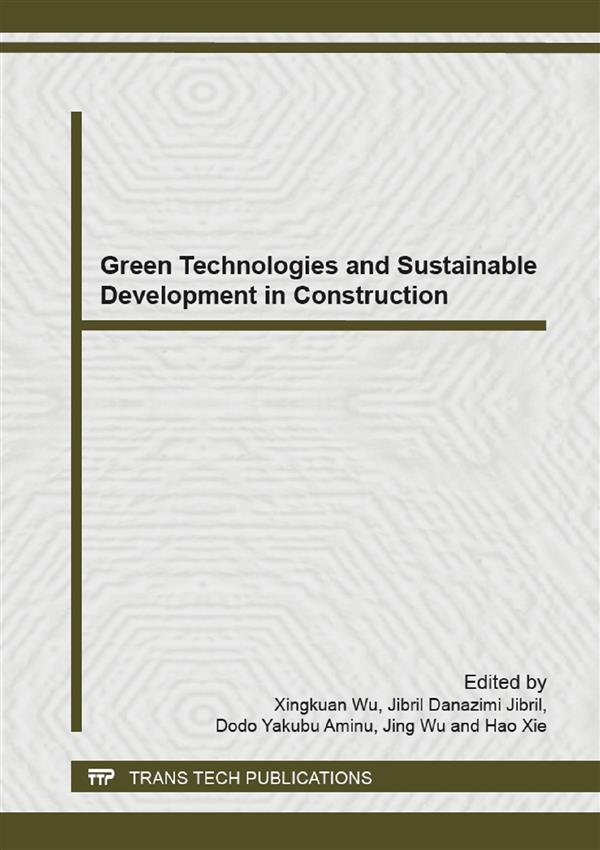Engineering Research
Materials Science
Engineering Series
Green Technologies and Sustainable Development in Construction
Description:
The 75 papers are grouped as follows:
Chapter 1: Green Building and Energy Saving Technologies,
Chapter 2: Green Building Materials and Constructional Structures,
Chapter 3: Urban Planning and Architectural Environment Engineering.
Purchase this book:
Info:
Review from Ringgold Inc., ProtoView:
Seventy-five papers from the December 2013 conference present recent research on green building materials and construction techniques, energy saving technologies, urban planning, and environmental engineering for green architectural design. Topics include green building opportunities in Lebanon, the economic efficiency of a green residential complex in Korea, green roofs for indoor thermal comfort in Cairo, natural ventilation in Malaysian houses, and landscape design at a real estate development in the Klang Valley. Five of the papers are co-written by editor Jibril, three by editor Jing Wu, and two by editor Xie.
Ringgold Subjects:
— Architectural engineering
— Built environment -- Planning
— Civil engineering -- Construction
— Environmental engineering
— Urban studies

